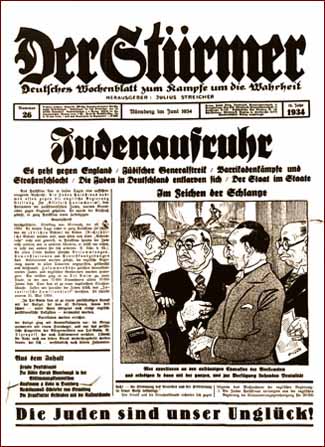
May 18
1291 The Sultan of Egypt and his son Ashraf take Acre, the last Christian stronghold in the Holy Land.

1631 John Winthrop is elected first governor of Massachusetts. "...Why do the Puritans have such a bad reputation in modern times? One reason is that the Puritans' ideas about the relationship between church and state are fundamentally different from that of modern-day Americans. In America, the government cannot pass laws to encourage people to worship God or practice the tenets of Christianity because our society contains a large number of non-Christians. But the situation of the Puritans was quite different. They had the unique opportunity to charter a new society. They came together as people of like mind and faith to create a new nation to honor God and to pass their Christian values to their children. They believed that church and government should work together to promote holiness and help people to succeed both materially and spiritually. Another reason why the Puritans have a bad reputation is that some of them were indeed intolerant, critical, and legalistic. They were human beings, subject to the same weaknesses as all men...In 1629, John Winthrop heard about a new venture called the Massachusetts Bay Company. In those days, groups of investors would put their money together and establish trading companies. The company would send workers to the New World to obtain furs, spices, and other exotic goods and ship them back to England for a profit. Each company had to be specially chartered by the King to receive authority and land to establish a colony in the New World. The colony would have a governor, but the board of directors and chief executive officer would stay in England, overseeing the operation and collecting the profits. On paper, the Massachusetts Bay Company appeared to be just another trading company. But there was a small technical detail that made it different from the other companies: The board of directors was not required to meet in London. In fact, the charter did not mention where the Company would meet. The King of England didn't notice this fact when he signed the Company charter. But the implications of this small oversight were enormous. The whole company, including the board of directors and the governor, could move to the New World and effectively set up their own autonomous government. They could establish their own laws and operate without any direct supervision by the King's authorities in London...First of all, they needed leadership. They needed one man of faith and vision who could lead them to the New World and govern them once they arrived. John Winthrop was recognized by all as a man of ability, maturity, and faith, and the Company elected him as its governor. Next, they had to raise an enormous amount of money to transport themselves to the New World. They had to obtain funds from private investors, not all of whom were Puritan, to support them in this venture. Then they had to organize a group of settlers who would live in the colony and support its purpose. There were many non-Puritans who were eager to go to the New World for purely economic reasons, and they had to be weeded out as much as possible. At that time, John Winthrop wrote an essay that laid out the main reasons why sincere Christians should consider moving to the New World. The first four reasons were: 1. To carry the gospel to the New World, to bring the fullness of the Gentiles into the kingdom of God. 2. To escape God's judgement that was coming upon the corrupt churches of Europe. 3. To help solve the problems of overpopulation and poverty in England, where human life was being devalued and people were regarded as less valuable than horses and sheep. 4. To obey the Great Commission and Genesis 1:28, which says, "Be fruitful and increase in number; fill the earth and subdue it..."
1642 The Canadian city of Ville Marie is founded; now known as Montreal.
1775 US Revolutionary War: The Americans capture Fort St. Johns. "Seth Warner marched a detachment up the lakeshore and captured Crown Point and more supplies along with nine more prisoners. On May 12, Allen sent the important prisoners to Connecticut's Governor Jonathan Trumbull noting that "I make you a present of a Major, a Captain, and two Lieutentants of the regular Establishment of George the Third." Arnold took a small schooner and several bateaux from Skenesboro north with 50 volunteers. On May 18 they seized another garrison at Fort St. Johns along with the Enterprise, a seventy ton sloop. Aware that several companies were stationed a twelve miles down river at Chambly, they loaded the more valuable captured supplies and cannon, burned the boats they couldn't take and returned to Crown Point. Ethan Allen and his men returned home. Benedict Arnold remained with some Connecticut replacements in command at Ticonderoga. At first the Continental Congress wanted the men and forts returned to the British, but on May 31 they bowed to pressure from Massachusetts and Connecticut and agreed to keep them. Connecticut sent a regiment under Colonel Benjamin Hinman to hold Ticonderoga. When Arnold learned that he was second to Hinman, he resigned his Connecticut commission and went home. In the winter of 1775-1776, Henry Knox moved the guns of Ticonderoga to Boston, to support the Siege of Boston. The captured ships were used, along with others, in 1776 by then General Arnold to thwart Britain's attempt at recapture in the Battle of Valcour Island. Ticonderoga was retaken by the British Saratoga Campaign in 1777, but abandoned after their surrender at the Battle of Saratoga."


1798 Benjamin Stoddert is appointed the first Secretary of the US Navy. "...In 1798 President John Adams appointed Benjamin Stoddert, a loyal Federalist, to oversee the newly established Department of the Navy. As the first Secretary of the Navy, Stoddert soon found himself dealing with an undeclared naval war with France, which would come to be known as the Quasi-War. Stoddert realized that the infant Navy possessed too few warships to protect a far-flung merchant marine by using convoys or by patrolling the North American coast. Rather, he concluded that the best way to defeat the French campaign against American shipping was by offensive operations in the Caribbean, where most of the French cruisers were based. Thus at the very outset of the conflict, the Department of the Navy adopted a policy of going to the source of the enemy's strength. American successes during the conflict resulted from a combination of Stoddert's administrative skill in deploying his limited forces and the initiative of his seagoing officers. Under Stoddert's leadership, the reestablished United States Navy acquitted itself well and achieved its goal of stopping the depredations of French ships against American commerce. Stoddert concerned himself not only with the Navy's daily administration and operations, but also with the service's future strength. He established the first six navy yards and advocated building twelve ships of the line. Congress initially approved construction of six ships of the line, but following the peace accord with France, changed its mind, eliminating the ships of the line and reducing the officer corps. Stoddert left a legacy of able administration and successful war fighting. Despite subsequent shifting political sentiments, the American people would ever after depend on the Navy to defend their commerce and assert their rights on the high seas..."
1803 Britain declares war on France, blaming Napoleon Bonaparte's continued interference in Italy and Switzerland.
1830 Edwin Budding of Gloucestershire signs an agreement for the manufacture of his new invention, the lawn mower.
1860 Abraham Lincoln of Springfield, Illinois, is nominated for the US Presidency by Republican Party leaders at a meeting in Chicago.
1872 Birth: Bertrand Russell, in England, mathematician, philosopher, Nobel 1950.
1896 The US Supreme Court endorses the concept of 'separate but equal' racial segregation with its 'Plessy v. Ferguson' decision.
1899 The First Hague Peace Conference opens in the Netherlands.
1900 Britain proclaims a protectorate over the kingdom of Tonga.

1910 Thousands take to their roofs, huddling for comfort and praying for salvation. Many believe the end of the world is near. The source of their anxiety is Halley's Comet, which has returned from its 75-year odyssey through space. Many scientists are excited by the opportunity to increase public knowledge of astronomy. By late 1909, several of the world's major observatories gear up for Halley's appearance. The public too eagerly awaits the moment when the comet becomes visible to the naked eye. Scientists have made calculations between May 18 and 19, predicting that Halley's tail will possibly sweep across earth. The tabloids jump in, and discuss the catastrophic effects of the gaseous comet on the earth's atmosphere, causing many to panic. In actual fact, the tail of Halley's Comet never comes any closer than 400,000 kilometres to the earth surface, and would not have been harmful at any distance.
1914 The Mariner becomes the first steamboat with cargo to pass through the Panama Canal.
1917 WW1: The Selective Service Act, a draft and conscription law, is passed in the US for all men between 21 and 30.
1918 WW1: Lance Corporal Adolf Hitler is awarded the Wounded Badge (Category Black). (Masser)

1918 WW1: The French Ambassador to Russia informs the commander of a Czechoslovak corps, which had been formed in Russia from prisoners of war that the Allies desire them to remain in Russia to form the nucleus of an Allied army against the Bolsheviks. (Polyakov)
1930 Weimar: Local Storm troopers (SA) attend religious services at the Cathedral of Regensburg, bringing with them their flags and banners.

1931 Birth: Don Martin, cartoonist.

1933 The Tennessee Valley Authority is created. TVA is one of the most ambitious projects of the New Deal in its overall conception. Its comprehensive nature encompasses many of FDR's own interests in conservation, public utility regulation, regional planning, agricultural development, and the social and economic improvement of the "Forgotten Americans." TVA will encounter many setbacks and failures, and be involved in many controversies. But it will bring electricity to thousands of people at an affordable price; control the flood waters of the Tennessee River; improve navigation; and introduce modern agricultural techniques.
1933 Church and Reich: The general secretary of the Catholic Journeyman's Association invites Hitler to a national meeting of apprentices to be held in Munich the following month. (Bundesarchiv, Koblenz)
1933 The Central British Fund for German Jewry is established in London.
1934 The Nazis decide not to apply the "Aryan Clause" to Asians.
1936 The British Colonial Office announces formation of the Peel Commission to investigate the disturbances in Palestine.
1936 Haile Selassie thanks Jews for their support in defending Abyssinia (Ethiopia).

1939 Holocaust: Julius Streicher's Der Stuermer calls for the extermination of all Jews in the Soviet Union, saying it is the only way to eliminate Bolshevism.
1939 Britain reinstates compulsory military conscription.

1940 WW2: Tyler Kent, a clerk in the US Embassy in London with access to correspondence between Churchill and Roosevelt, is arrested and has his diplomatic immunity waived by the US ambassador. Allegedly, he had passed along this information to members of the Right Club, a pro-Fascist organization, which forwarded it to Germany through Italian diplomats.

1942 Resistance: A public display of anti-Nazi posters in Berlin by a student group led by Herbert Baum leads to their capture (See May 27). (Atlas)
1943 Holocaust: The village of Szarajowka in eastern Poland is encircled by the Germans. Young men are shot on the spot. The women and children are herded into buildings and stables, which are then set on fire. Only a few escape. (Apparatus)
1944 WW2: The Allies complete the conquest of Cassino and link up with the Anzio forces a week later. The Fifth Army then advances 75 miles toward Rome. Note: Among the Allied troops is General Anders' 2nd Polish Corps attached to the British 8th Army, of whom diarist Leon Gladun is an artillery officer.
1944 WW2: In the Soviet Union, the expulsion begins of more than 200,000 Tatars from the Crimea. They are accused of collaboration with the Germans.

1945 WW2: The US 6th Marine Division takes Sugar Loaf Hill on Okinawa after several days of bitter fighting.
1951 The UN General Assembly passes a resolution banning shipment of strategic materials to China, as it moves out of its temporary headquarters in Lake Success, New York, to its permanent home in Manhattan.
1954 The European Convention on Human Rights goes into force.

1969 The US spacecraft Apollo 10 with astronauts Eugene A. Cernan, Thomas P. Stafford and John W. Young is launched on a mission to rehearse for a moon landing.
1974 India becomes a nuclear power when its first bomb is successfully exploded in the Rajasthan Desert.
1977 The United States, the Soviet Union and 29 other nations sign a United Nations pact banning artificial use of the weather as a weapon of war, pledging never to attack each other by triggering storms, earthquakes or tidal waves.

1980 Mount St. Helens is shaken by an earthquake of about 5.0 Richter magnitude, and the entire north side of the summit begins to slide down the mountain. The giant landslide of rock and ice, one of the largest recorded in history, is followed and overtaken by an enormous explosion of steam and volcanic gases, which surges northward along the ground at high speed. The lateral blast strips trees from most hill slopes within six miles of the volcano and levels nearly all vegetation for as far as 12 miles away. Approximately 10 million trees are felled by the blast. The landslide debris, liquefied by the violent explosion, surges down the mountain at speeds in excess of 100 miles per hour. The avalanche floods Spirit Lake and roars down the valley of the Toutle River for a distance of 13 miles, burying the river to an average depth of 150 feet. Mudflows, pyroclastic flows, and floods add to the destruction, destroying roads, bridges, parks, and thousands more acres of forest. Simultaneous with the avalanche, a vertical eruption of gas and ash forms a mushrooming column over the volcano more than 12 miles high. Ash from the eruption falls on Northwest cities and towns like snow and drifts around the globe within two weeks. Fifty-seven people, thousands of animals, and millions of fish are killed by the eruption of Mount St. Helens. By late in the afternoon of May 18, the eruption subsides, and by early the next day it will have essentially ceased. The volcanic cone is completely blasted away and replaced by a horseshoe-shaped crate; the mountain lost 1,700 feet from the eruption. The volcano will produce five smaller explosive eruptions during the summer and fall of 1980 and remains active today. In 1982, US Congress will make Mount St. Helens a protected research area.
1990 In the face of heated student protests, the trustees of all-women Mills College in Oakland, California, votes to rescind their earlier decision to admit men.
1990 The two Germanys sign a monetary union treaty, the first step on the road to unification.
1992 The CBS season finale of TV sitcom Murphy Brown airs, with the title character, played by Emmy-winner Candice Bergen, giving birth to an illegitimate son. Vice President Dan Quayle publicly lambastes the comedy, saying that the program 'glorified' single-parenthood, and that it makes a mockery of families with fathers. He went on to comment that Murphy Brown lacks the judgment to be a proper role model for young women, and that her actions are immoral. Despite the national unpopularity of his criticisms, Quayle will not back down from his stand against the popular show, providing fodder for many standup comics.
1992 The UN High Commissioner for Refugees declares that the civil war in Yugoslavia has pushed over 1.3 million people from their homes and created Europe's worst refugee crisis since WW2.
1995 Triumphant Republicans push a historic budget through the House that they say will wring an unprecedented $1.4 trillion in savings from federal budgets over the next seven years.
2001

2002

2003

2004

2005

2005

2005

2005

2005

donm

Visit:




 Visit:
Visit:

Click Here to email the History: One Day At a Time webmaster.